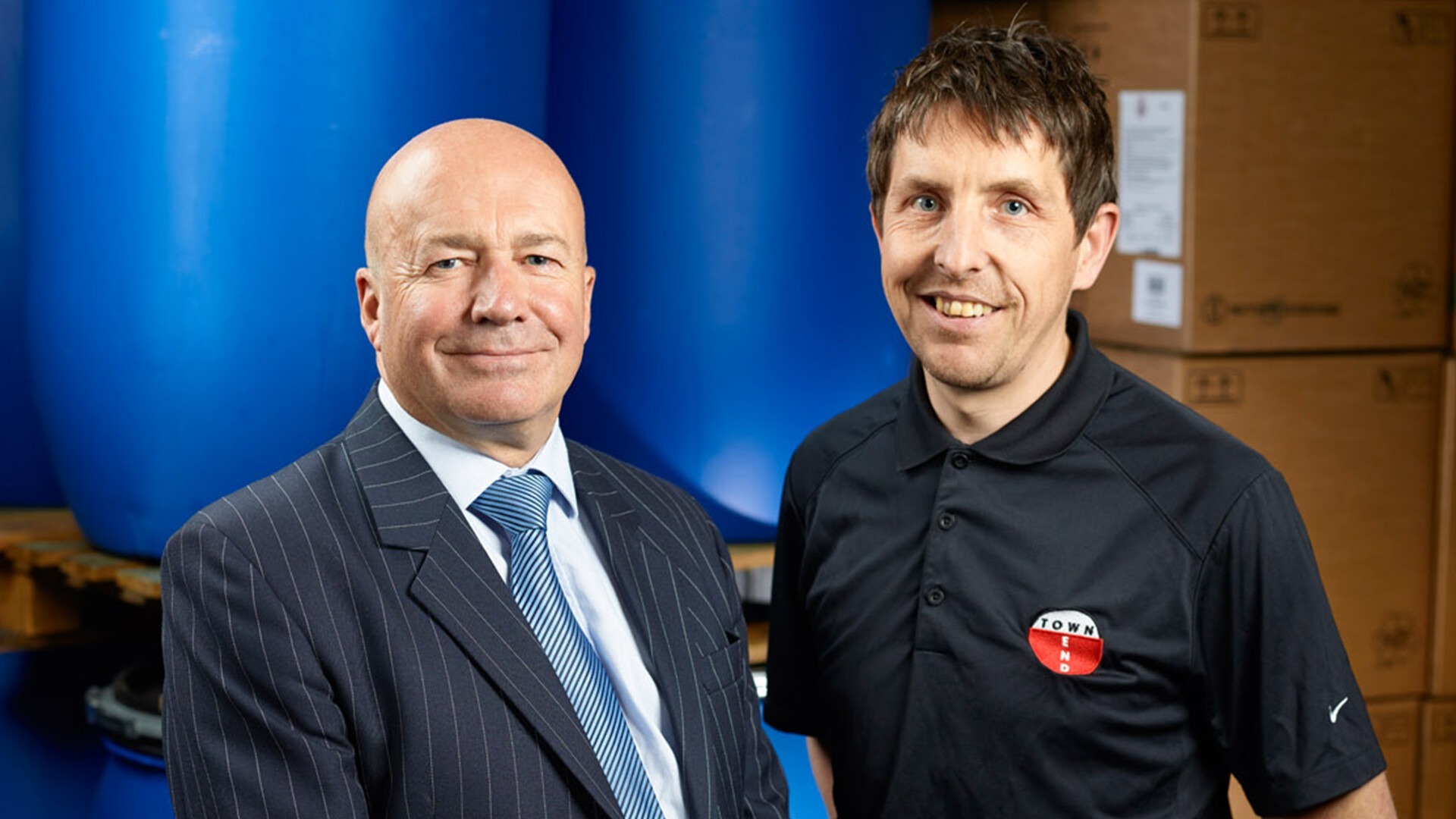
Live and let’s dye
We start with Town End (Leeds) plc who manufacture dyes for industry. We put their overseas business manager, Richard Booker under the spotlight.
Town End (Leeds) plc combines a wealth of experience and technology from our modern facility near Leeds to supply an extensive range of high-quality dyes and pigments to over 80 countries. We continue to invest heavily in plant, laboratory and personnel to ensure that it is at the cutting edge in this highly competitive field of specialisation.
Our extensive range of dyestuffs finds themselves into many non-textile applications such as detergents, tracer dyes, food colourants and staining products. Our different new market for lake and pond colours offers products which stop algae and weed growth in ponds and lakes.
We offer a specialist formulation and blending service to customer needs and specifications. Our vast knowledge of colour and colouration in many fields allows us to tailor our products to your needs.
How did you get into this industry and what’s the best thing about it for you?
My career in the chemical industry commenced with a graduate management trainee programme at Croda International. This gave me a fantastic understanding of product management, production, technical, purchasing, sales and marketing which developed my wealth of business acumen.
Marketing to end users and distributors globally is a fantastic challenge. I have worked with some customers for over two decades, and it is great to develop new products into new markets as well as improving the offering to existing customers.
As a manufacturer what are your key challenges?
The top three challenges faced by our industry are:
- Stability of pricing
Due to the migration of chemical manufacturers to the East, we are reliant on the Asian economy for some our base raw materials. With the G20 summit being held in Hangzhou in September 2016 and the recent increase in environmental pressure, China has seen an increasing in costs of producing products meeting the required criteria. Added to which the volatility in exchange rates further destabilises pricing in our industry. - Forecasting with reasonable accuracy to reduce inventory
Supplying dyestuffs into the textile industry is a challenging product to predict due to changing fashion trends. Added to which the lead time for raw materials from Asia can result to high inventories of materials. - Ensuring compliance with environmental directives
Some environmental legislations regulate the dyestuff industry for hazard labelling and now Reach, the Registration, Evaluation, Authorisation and Restriction of Chemicals. This takes a lot of time and money to ensure compliance.
What would you say are the advantages and disadvantages of exporting for your business?
Advantages
- Expanding your markets lowers dependence on one market which may suffer economic or political problems.
- Higher volume can lead to economies of scale.
Disadvantages
- Lose focus on your existing markets and customers.
- Higher admin costs for new markets – additional paperwork required – e.g. certificates of origin/inspections
- Harder relationships to manage in different languages
How do you stay ahead of the competition?
- Reputation of quality and consistency of supply from a Leeds-based manufacturing organisation.
- Stock availability when the customer requires
What do you think needs to be done to support the manufacturing industry in the UK?
- Incentives to promote manufacturing in tax credits or reduction in council rates.
- More available funding and grants to support expansion.
- Enhanced assistance from overseas embassies to promote trade development


